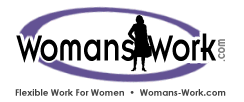If there was ever a good time to brag about yourself, the interview is the
time to do it. Don't be bashful! While you don't want to come across as pompous,
you do want to project an image of self-confidence. Your attitude should be,
"I have a lot to offer. Let me tell you about myself." Look the
interviewer in the eyes as you speak. Smile with your whole face. If you get
nervous make sure that you are taking slow, deep breaths.
Preparation will help you relax. Be prepared with the following:
- What unique qualities do you have that would bring value to the role?
- What are your past accomplishments?
- What skills and accomplishments make you uniquely qualified?
- Identify key contributions you have made for your current employer.
- What are your strongest attributes?
- In what areas can you improve? And what have you done to work on
improving?
Be prepared with specific examples!
Many employers are now using Behavioral based interviewing. This interviewing
technique works under the assumption that the best predictor of future behavior
is past behavior. You will recognize an interviewer who is using this technique
when he or she continuously asks for specific examples and presses for an action
with an outcome. You will make a good impression if you are prepared and can
give all the requested information without a lot of prodding. To be successful
in this kind of interview do the following:
- Prior to the interview think of specific work or educational experiences
where you demonstrated skills (technical and interpersonal) that would be
important to the position.
- During the interview keep your cool and take your time. It's okay to tell
the interviewer that you need a minute to think. Take deep breaths and
concentrate. Get your thoughts in order before you begin to speak. It is not
unusual for a candidate to take some time to think of specific examples.
Many are not prepared for such specific questions.
- Listen carefully to the question and give the whole answer. The interview
will be looking for a STAR S/T = Situation or Task, A = the Action you took,
R = the Results.
Here are some examples of behavioral based questions:
-
Tell me about a time when you had to deal with a difficult co-worker. What
was the situation, what did you do and what was the outcome?
-
Tell me about a project that you are particularly proud of. What was it,
what was your role and what was the outcome?
-
Tell me about a strategy you have used to develop a stronger work team.
What was the situation, what did you do, and what was the outcome?
-
Give me an example of a time when you missed an important deadline. What
were the circumstances, how did you handle it, what was the outcome?
You get the picture. The truly experienced behavioral based interviewer won't
let you get away with only answering part of the question either. So be ready !
You also want to know that the job is what you want, so be prepared to ask
some questions about the position. You will be interviewing them. What kind of
environment do you want to work in? What opportunities for promotion do you
want? What role do you want to play in the organization as a whole?
As a Human Resource professional, I can tell you that the role that this
department plays in the organization can be very different depending on the
culture. And there are differences between organizations in all
departments. Whenever I went on an interview I
asked what role HR played and what the perceptions of the department were within
the organization. Was there HR representation on key leadership committees and
did they have a voice. It was always important for me to work in an organization
whose Human Resource department had evolved beyond being paper pushers. Other
professions are going through similar transitions. So, determine what is
important to and ask !!
Before your interview, know what the going rate
is for the job. Go to our
Salary Information
to search by job title and location.
Also see our
Resume Formats,
visit our
Job
Board to find more than 25,000 fresh flexible
work jobs!
